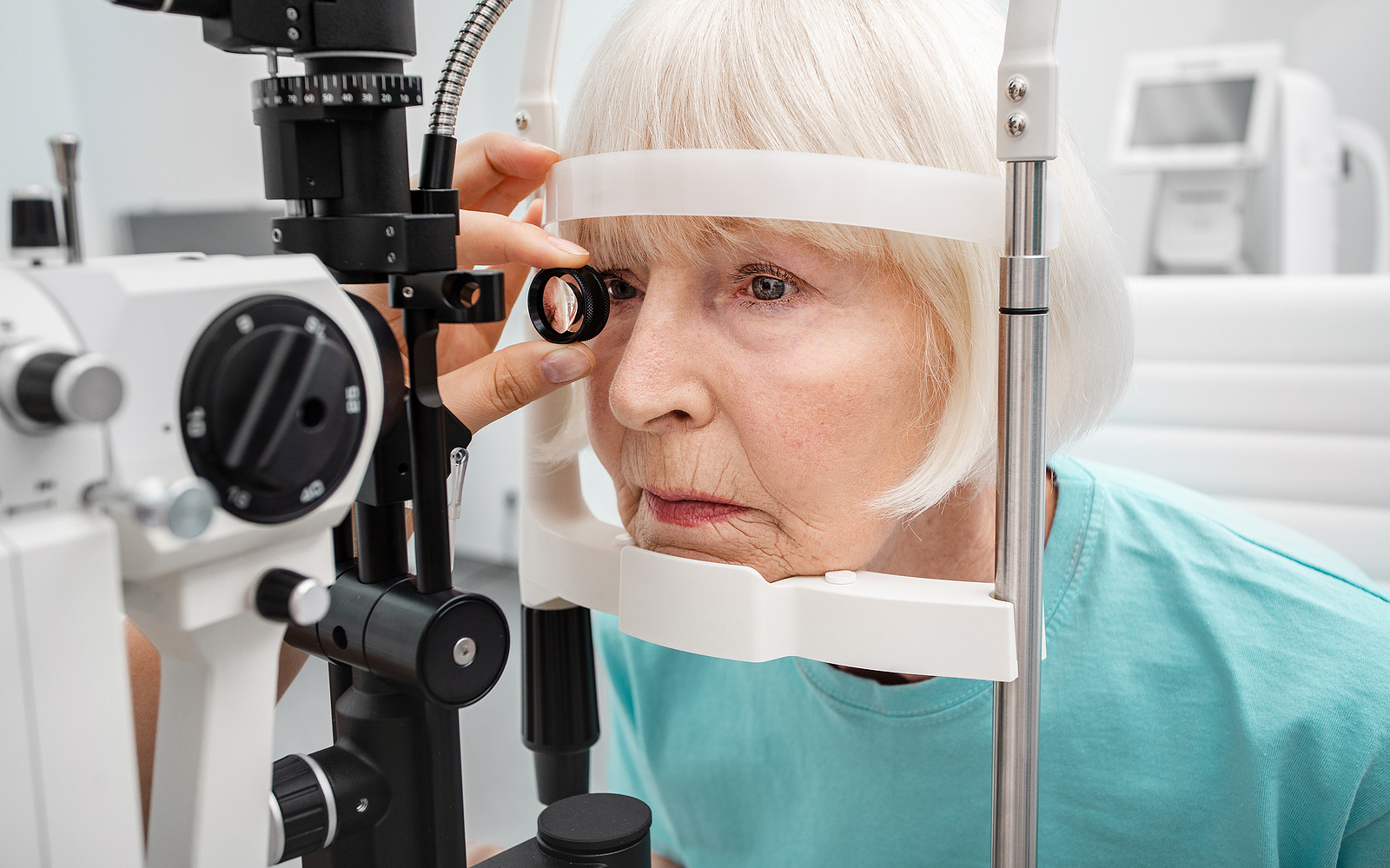Do I Need To Take Time Off From Work After Cataract Surgery?

Are you one of the millions of adults who suffer from cataracts? Ready to take corrective action? Great news: Cataract surgery can help you see clearly once again! Cataract surgery is generally very safe, quick, and effective with a minimal recovery period, but it’s best to plan for a few days of rest after the procedure. Here’s what you can expect at Swagel Wootton Eye Institute.
During Your Consultation
Cataracts can be managed in the early stages with brighter lights, anti-glare sunglasses, or an updated corrective lens prescription — but only cataract surgery can remove cataracts and restore your vision. During your cataract surgery consultation, you’ll meet with our expert team of eye care professionals for a thorough eye examination and to determine if you’re a candidate for surgery. We will:
- Answer your questions about the procedure
- Discuss and determine which advanced intraocular lens (IOL) option will best meet your vision and lifestyle goals
- Outline expected costs
- Review financing and payment options — including insurance and Medicare coverage, when applicable
Before the Procedure
You may be asked to avoid eating or drinking anything 12 hours before your scheduled surgery. You may also be advised to forgo taking certain medications on the day of the procedure. It is also important to remove all eye makeup and facial lotions prior to your arrival. When you arrive at your scheduled time, you may be given a medication like Valium to help you relax. We’ll also provide you with essential items and instructions for your recovery, including prescription eye drops to prevent infection and inflammation, a protective eye shield, and dark sunglasses. Be sure to have a ride home planned, as you won’t be able to drive after surgery.
During the Surgery
You’ll be awake during the surgery, but you shouldn’t experience any pain: A local anesthesia will be administered to numb the eye. The surgery typically takes no longer than 20 minutes. The surgeon creates a small incision to replace the cloudy lens with the predetermined IOL. If you opt for laser cataract surgery, rather than traditional cataract surgery, our expert team of surgeons will use the computer-assisted LenSx Cataract Laser to make a precise, customized cut. Once the cataract is removed, we use intraoperative aberrometry to improve the outcome.
Immediately After Surgery
It’s not unusual to feel groggy after surgery, and you may be asked to wait up to 30 minutes before leaving the facility. Many people experience clear vision right away, but common side effects can include a temporary increase in light sensitivity and blurred vision. You’ll be encouraged to rest upon arriving home, and it will be important to wear your protective eye shield during any naps and overnight. Take your eye drops exactly as instructed throughout the day. You may experience dry or bloodshot eyes; this is normal. You may also have slight bruising at the anesthesia injection site. Your doctor may recommend using an oral pain reliever containing acetaminophen for a day or so during the postoperative period.
During Recovery
You will have a follow-up appointment the day after surgery to ensure your healing is proceeding as expected and without complications. This is an excellent opportunity to discuss any questions or concerns you may have about your healing process with the doctor. Rest is important to help facilitate recovery, and it will be important to take it easy for two or three days after surgery before resuming normal activities. Plan accordingly: This may require taking a few days off work or limiting social or housework plans.
Your vision will continue to improve in the following days and weeks as your eye heals. Full recovery from cataract surgery typically takes about four weeks but can vary depending on your unique health circumstances. Be sure to follow your doctor’s instructions carefully and completely for the best recovery results, and exercise these tips for at least the first week:
- Use your eye drops regularly and exactly as directed
- Wear your protective eye shields as instructed
- Abstain from driving the day following your surgery
- Limit reading and computer use
- Avoid rubbing your eyes to prevent blurry vision or injury
- Refrain from any heavy lifting, strenuous activity, hot tubs, and swimming pools
- Exert caution when washing your face or showering
- Avoid exposure to dust, wind, and pollen
Trust the Cataract Experts at Swagel Wootton Eye Institute
Our team of world-class doctors is here to help restore your vision and provide you with a safe, positive eye surgery experience. We’re trained to use the most advanced technology and offer the latest lens options for your comfort and best outcomes. Request your appointment today with Arizona’s cataract surgery experts.
[DISPLAY_ULTIMATE_SOCIAL_ICONS]








